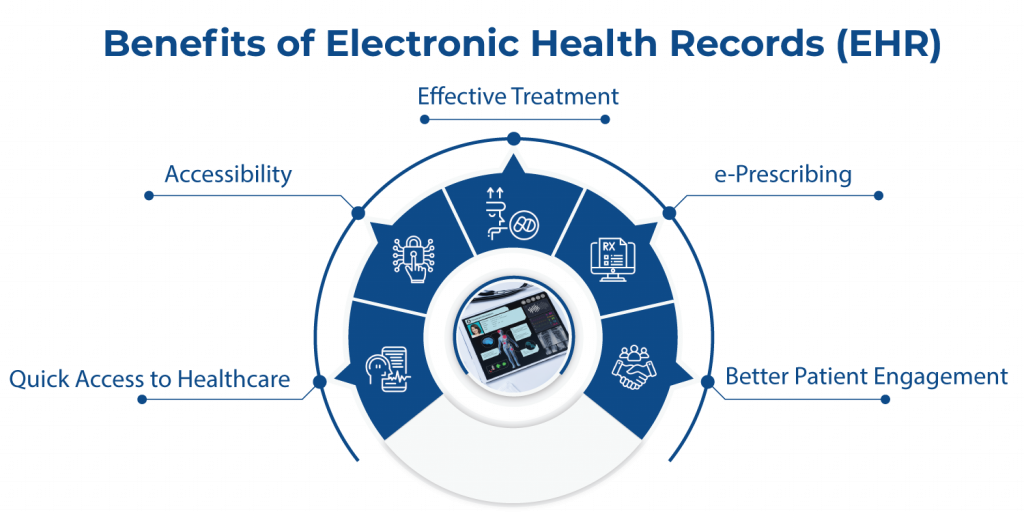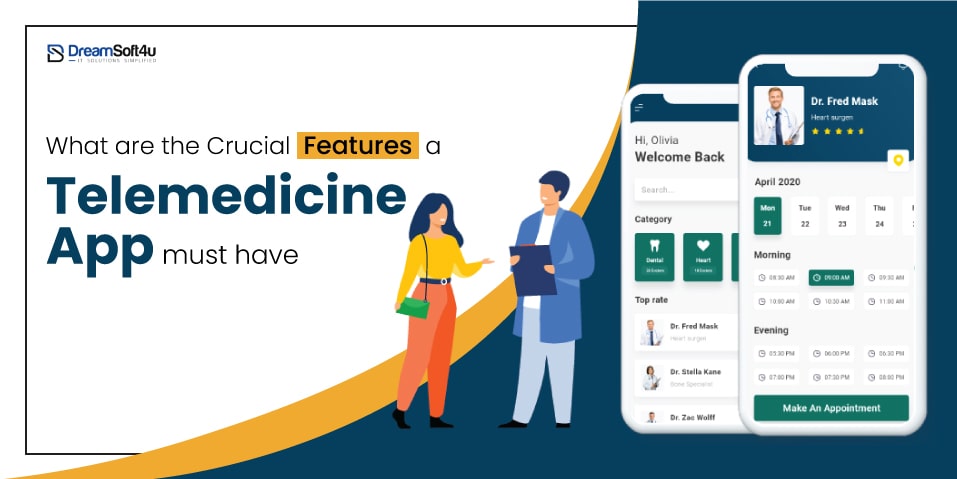The conventional working of the healthcare industry has changed drastically with the implementation of Electronic Health Records (EHR) facility. Earlier, the organizations were using the traditional form of working which was purely paper-based. The process was highly unappreciated because of the limited accessibility, poor file management, and the expense of storing large data files. Hence, seeking the need to set up a fully functional system for managing these records, EHR Software came into the ground. The article has covered all the information related to the challenges and benefits of electronic health records (EHR).
The EHR Process was highly appreciated by the doctors, and physicians, as it was the most convenient way to reach a highly appropriate health record. But as the good always draws some bad, the doctors and physicians noticed some of the challenges in using the technology. Any software is accepted on these two parameters. Systems with more functionality and fewer glitches are recommended first. So let us get in-depth information on the EHR Benefits & Challenges for doctors and physicians.
Table of Contents
ToggleWhat is Electronic Health Records (EHR)?
The concept of medical health reporting was postulated by Larry Weed in the 1960s. Later on, in 1972, the first medical record software was developed by the Regenstrief Institute.
According to the definition, an Electronic Health Recorder (EHR) is a mechanism to collect patient, population health data electronically i.e. in digital formats.
These records then can be transferred or shared to different healthcare centers for pre-specified purposes.
The EHR consists of data that includes demographic, medical history, allergies or medication tenure, lab test results, immunization, radiology images, etc. reports.
In the past few years, EHR has become the ultimate way of gaining the proper healthcare and diagnostic status of patients. The system is designing to save the patient’s data accurately and then continue the treatment with 100% efficiency.
Having said that, Dreamsoft4u has shared some popular characteristics or benefits of utilizing the EHR technology for serving the patients.
Read Also: Difference between EHR and EMR? | EHR vs EMR
Benefits of Electronic Health Records (EHR)
Electronic Health Record (EHR) is an awesome tool for detecting the actual health and determining the worthy treatments. The MD, Co-founder of HealthFusion Board has termed EHR as:
“EHRs regularized the functioning and provided doctors the ability to utilize the PHI or data for better predicting the diagnosis, aid in health management, and offering a sustainable patient care experience, in terms of everything to be note down of papers.”
There are a few more features that have been added to the quality of this software known as EHR:

1. Accessibility
EHR is electronically stored data that are accessible from any part of the world. Whenever a patient needs extra care, medical conditions or history can be evaluated from these data by experts at any point in time. It facilitates many big decisions in evaluating the Blood Type, Allergies, Previous healthcare conditions, etc.
2. e-Prescribing
The best segment of EHR or telemedicine is that patients can receive online prescriptions. EHR Technology aids in a contactless prescription of the treatment which can be a boon in the pandemic time. It also accompanies pharmacy working, boosts medication flows, better clinical supports, and improved patient and doctor safety.
Read Also: Medical Billing Software Features You Must Need
3. Better Patient Engagement
In the light of digitization, Electronic Health Record Software is the right approach towards health benefits. The process is quite handy and better engagement with the doctors. It has reduced the clinical problems like sitting in the queue, waiting for the appointment.
4. Effective Treatment
EHR System has immensely facilitated the standards and availability of healthcare services. Now patients got the opportunities to gain personalized check-ups and treatment possible. People can seek the help of the world-best doctors from sitting in any corner of the world.
5. Quick Access to Healthcare
As the above section expresses, EHR has removed the obstacle of seeking the best doctors. Now everybody, anywhere at the requested time can attend the help. It has reduced the traveling expenses who have to travel far for gaining the best treatment.
Read Also: What is EPIC EMR and its Integration Challenges
What are the Challenges of Electronic Health Records?
There are two sides to a coin i.e. Pros & Cons. An eye on the benefits is already taken, now comes the EHR challenges or disadvantages with their Software. So let’s take a gaze at it also:
1. Cost and Implementation
Moving from a paper-based system to a digital one is not inexpensive. Small offices might present considerable financial challenges. Furthermore, expenditures include software licensing, hardware updates, employee training to ensure proficiency and continuing maintenance payments. Budget restrictions are a significant impediment to adoption.
2. Interoperability
Consider a patient’s medical history spread across multiple hospitals and clinics, each with incompatible EHR systems. The lack of smooth data interchange leads to a fragmented image of a patient’s health. Providers struggle to gain a whole picture, which may impede diagnosis and treatment approaches.
3. Usability and Workflow Disruptions
The EHR is the foundation of the Healthcare app development. While improving data integrity and accessibility, complicated user interfaces can be a productivity killer. Clinicians may spend more time struggling with the system to document patient contacts, lowering the quality of direct patient contact.
4. Data Security and Privacy Concerns
EHRs contain enormous amounts of sensitive patient data, which scammers can easily target for cyberattacks. Strong security measures are necessary to protect this data and maintain it with compliance rules such as HIPAA. Moreover, data breaches can be damaging not only for patients but also for healthcare institutions.
5. Staff Training and Adoption
A successful EHR implementation requires extensive staff training. It is critical to help everyone, from doctors and nurses to administrative professionals, understand and efficiently use the system. However, implementing a new technology can cause initial workflow delays as employees adjust to new procedures. Patience and support are required throughout this transitional phase.
6. Long-Term Sustainability
Technology is continually evolving, and data storage requirements increase. Healthcare businesses must plan for ongoing investments in Electronic Health Record systems. This requires updates to keep up with advancing technology and sufficient data storage space. A long-term strategy for continual development is critical to ensuring EHR systems’ survival in the face of a changing industry.
7. Lack of Information
The major concern here is the deficiency of proper implementation among all the variety of software. It sometimes lacks furnishing complete analysis of a patient’s health that ultimately triggers better treatment possibilities.
Want to develop Healtcare App for your Business?
Get your custom software via DreamSoft4u.
Conclusion
Although electronic health records have substantial obstacles, such as privacy concerns, high prices, interoperability issues, and their benefits in improving patient care, it is necessary to work on data management and expedite healthcare operations to eliminate errors. Healthcare software development company may realize EHR’s potential to improve patient outcomes and efficiency by tackling these difficulties with strong rules and advanced technology.
FAQs
Q1. What is an Electronic Health Record (EHR)?
An EHR is a digital version of a patient’s medical history that authorized healthcare providers can access in different settings.
Q2. How do EHRs improve patient care?
EHRs provide accurate, up-to-date information that improves coordination among providers. They also reduce errors and support better decision-making.
Q3. What are the privacy concerns associated with EHRs?
Risks include unauthorized access and data breaches. Compliance with regulations and robust cybersecurity measures can mitigate these concerns.
Q4. What are the costs involved in implementing an EHR system?
Costs include software, hardware, training, and maintenance. While initially high, long-term benefits often outweigh these expenses.
Q5. How do EHRs support public health and research?
EHRs provide data for population health management, disease surveillance, and research, helping improve health outcomes on a larger scale.



















